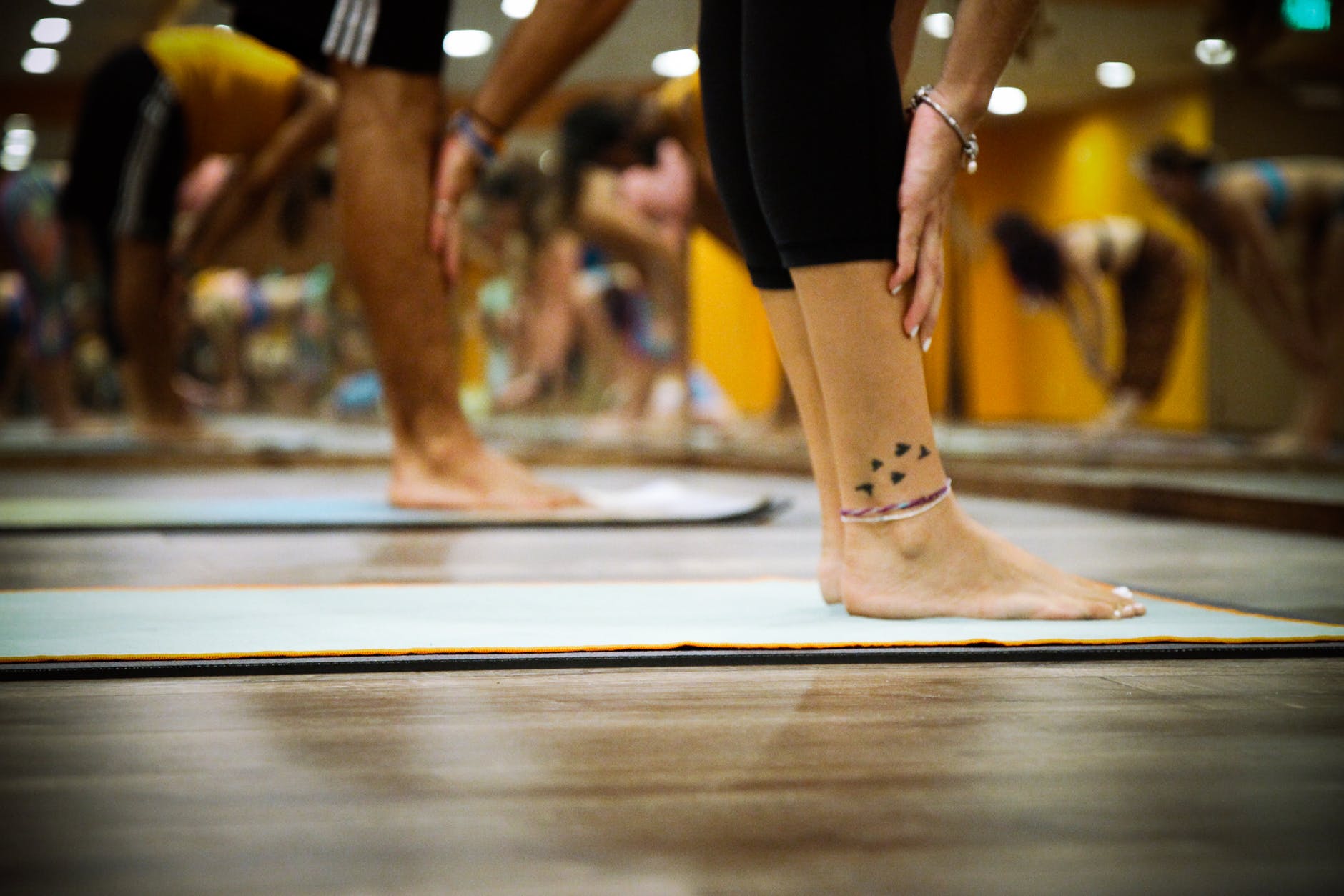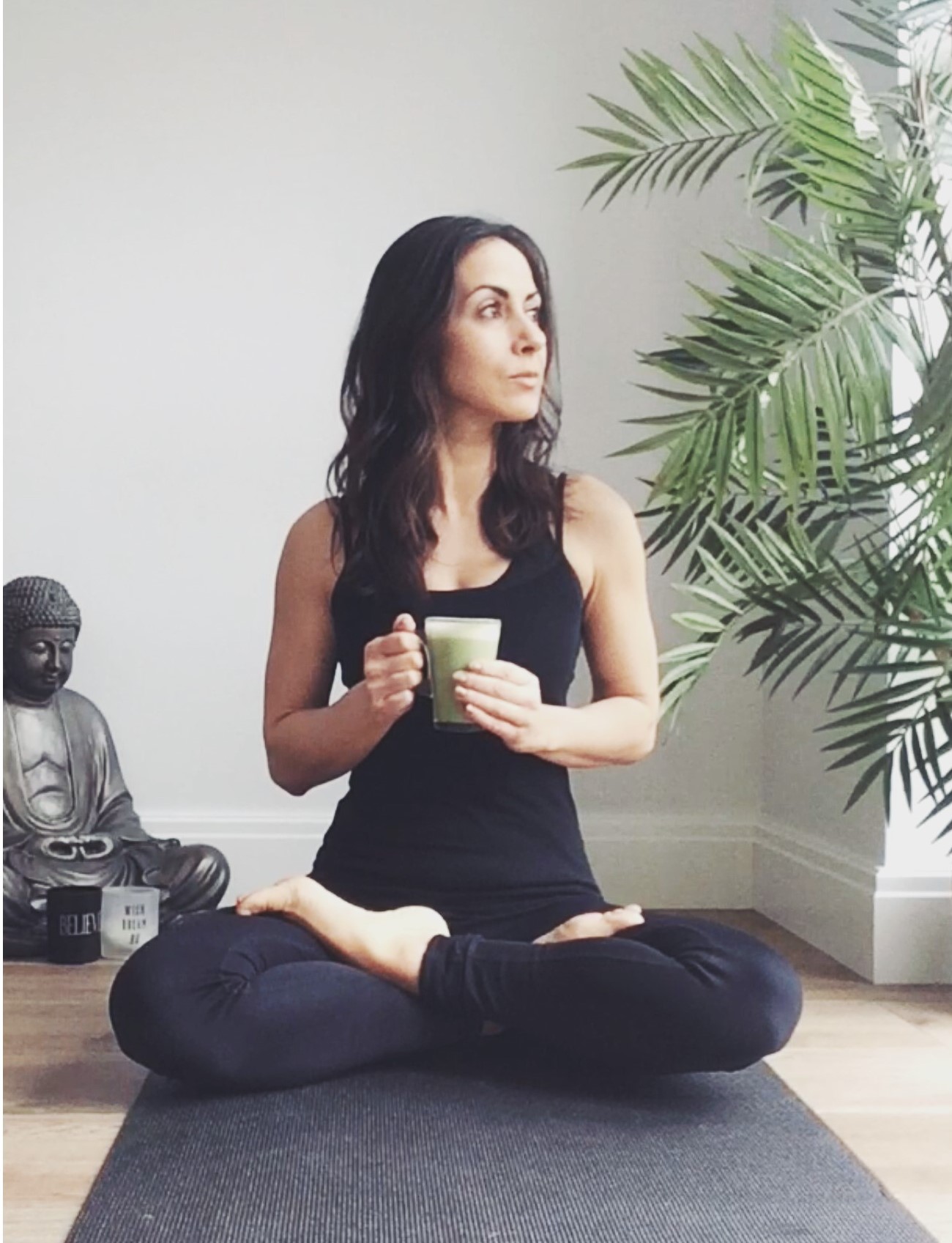
The unrealistic expectation of “self” in a body conscious society
July 20, 2016
My Journey to Pilates
November 14, 2019My Name is Mariella and I’m an Orthorexic …!
Who would have thought it possible to be unhealthily obsessed with eating healthy! And yet when you find yourself overdosing on chia seeds, medjool dates and cashew butter or freaking out over a potato, you have to question if your ‘Clean Eating’ lifestyle is slightly verging on obsessive compulsive behaviour.
They say in life often a situation will keep repeating itself until you learn a lesson. After emerging from a decade of self-inflicted emotional eating restriction, which bordered on an eating disorder, it is easy with the benefit of hindsight to equate some of the emotional aspects that led to my behaviour and why I developed a compelling addiction around a need to exert control in the amount of food I ate. When I came out of this dark time scarcely unharmed, I was overjoyed that I’d seen the light and the error of my ways. I had finally reached a place of contentment and balance and had adopted a new found love of food and all things nutrition related. So much so that I embarked on various nutrition courses and sought to find all the answers. Ironically whilst food had held me a prisoner for so long it was now my new found passion and friend and I was finally healed. Or so I thought.
What I was oblivious to, was how I was unknowingly replacing one addiction and compulsive behaviour for another. It was a gradual process and what started as simply eliminating certain food groups such as wheat and dairy slowly evolved into a list where my ‘off limit’ foods were worryingly longer than what I categorised and considered ‘Good Foods’. Before I knew it I was eating a diet that basically consisted of vegetables (and not even all vegetables as not all were compliant) with the occasional serving of protein. My days would revolve around thinking, planning or preparing meals. From smoothies and kombucha to paleo pancakes, quinoa and goji berry breakfast bowls. Fuelled by the power of the internet I would scour the pages of the industry’s health and fitness gurus and professionals for the latest uber-healthy food to add to my repertoire. And then I would eat it religiously and rave about the benefits. A simple trip to the supermarket would take hours out of my day as I would read the back of every label in search of suspicious ingredients and I would justify my behaviour to friends and family by citing a list of undiagnosed food allergies and health benefits of my new and improved lifestyle. I would find myself judging and lecturing those around me if they were tucking into what they considered a “healthy lunch” when all I could see was a bowl of non-compliant food sources such as legumes, pulses, soya or even worse ….grains!
This new found obsession had me fixated on maintaining the perfect diet and lifestyle. In my typical ‘all or nothing approach’ I believed that somehow through food and good nutrition I would find health and emotional wellbeing. What was really happening was I had replaced an eating disorder with a new found addiction and developed a new pathological desire to exert control. I had become part of a new generation of food obsessed ‘Orthorexics’.
‘Orthorexia’ is the term used to describe symptoms of obsessive behaviour in pursuit of a healthy diet. In contrast to people with anorexia who restrict their intake by following diet fads to be thin, Orthorexics restrict their intake by following a healthy diet to be healthy. As a consequence I was on average consuming less than 10 types of foods, becoming increasingly anxious and irritable and began to develop new health issues and actual diagnosed deficiencies.
What I have learnt from this is that often when people think of having an addiction they instantly think about it including a substance. However, the term ‘addiction’ can often be used to describe excessive behaviour. It has long been disputed whether or not food can really be classed as addictive. Some believe that it is not appropriate to term food as ‘addictive’ as it is essential to life and not something that people can be weaned off. But often it is the behaviour associated with food and emotional eating that can lead to food and eating issues. People eat for all sorts of reasons. The primary reason is to satisfy hunger although other reasons have been associated with emotions such as, boredom, depression and stress, fear, reward, chronic overeating, binging and habit. Identifying food triggers and understanding eating habits is paramount to overcoming any food associated battle.
I wish that I could close this article with a quick fix solution or my top tips for recovery, however I still to this day often convince myself that surely amongst all the addictions to have it is a good one? And whilst I am constantly striving and working on achieving a more balanced approach I am by no means healed. I am like many ‘work in progress’ because as with any addiction and compulsion, recovery is a process that takes time and patience. Anyone who is fighting or has fought addiction will know that you don’t just walk away, you face a constant battle and if you are aware and can recognise the signs you are one step closer.
Ultimately my aim has always been to reach a point where I can take full ownership of the food I eat when I am at my most hungriest, saddest, stressed or feeling unwell as these are often the times where all logic dispenses. It is without question about making good choices but also about eating without the guilt. There are no quick fixes to creating lasting results. You have to change your daily habits, your mindset and your lifestyle to achieve long term success in pursuit of balance.
Kris Carr New York Times Best selling author and wellness activist once said “We don’t need to make peace with our food. We need to make peace with ourselves. Food is nourishment, not the enemy”.
To read my full published article with more information click here: www.consumerhealthdigest.com/real-stories



